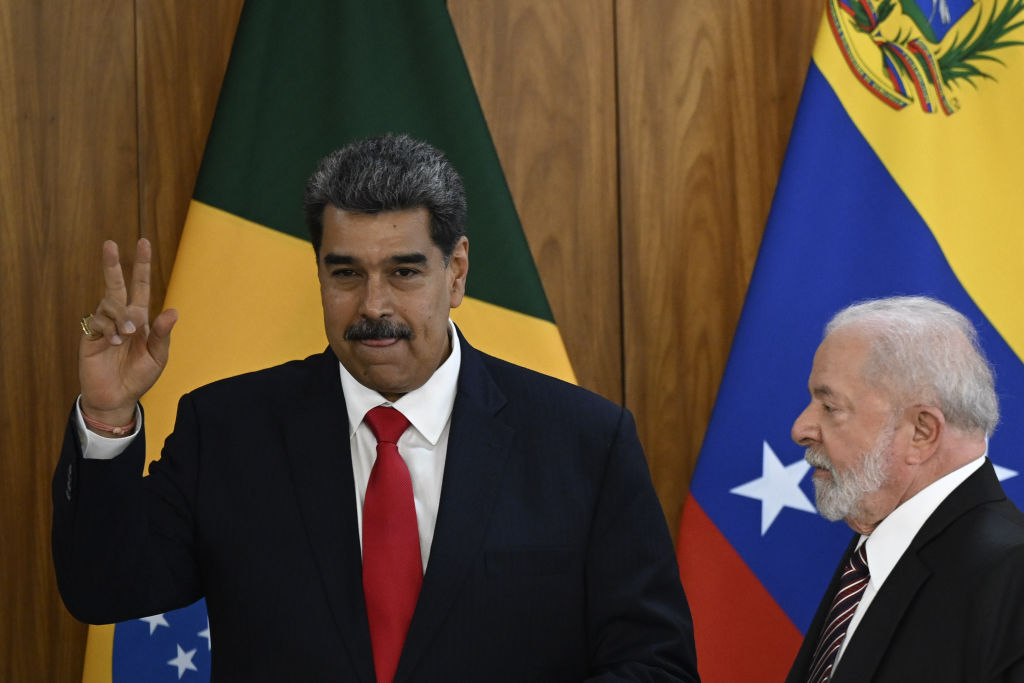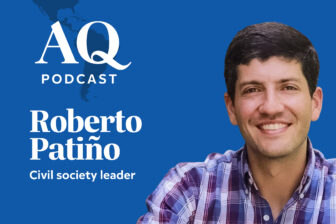In the aftermath of what looks to have been a blatantly fraudulent election in Venezuela on July 28, the administration of Brazilian President Luiz Inácio Lula da Silva has decided to join Mexico and Colombia to help facilitate a dialogue between the Maduro administration and the opposition.
This has reignited familiar discussions about Brazil’s foreign policy strategy. Similarly to its response to Russia’s invasion of Ukraine, Brazil has sought to craft a “neutral strategy,” predictably enraging those who say the facts are too clear to justify fence-sitting. Thirty former Latin American presidents recently exhorted Lula to take a tougher stance to defend democracy in Venezuela. Be it growing tensions between the West and China, the war between Russia and Ukraine, or Venezuela’s descent into full-blown dictatorship, Brazil—just like other large powers in the Global South, such as India or Indonesia—often opts for an ambiguous stance to keep all doors open. This is often described as “pragmatism” by its supporters and decried as hypocritical or morally questionable by critics.
Those opposed to Lula’s strategy of seeking to persuade Venezuelan electoral authorities to release the vote tally sheets before deciding whether to accept Maduro’s claim of victory see it as playing into the hands of Venezuela’s president. After all, calling for an “impartial verification of the results” in a country without properly functioning checks and balances or an independent electoral justice system implicitly ends up lending an autocratic government a veneer of legitimacy, as if an impartial verification were possible. Lula has a history of making similar remarks about Russia, such as calling for an independent investigation into the death, earlier this year, of Putin opponent Alexei Navalny, who endured conditions in prison that have been described as amounting to torture.
In addition, the initiative by Brazil, Colombia and Mexico certainly helps Maduro buy time as he hopes the international community will move on once the next crisis emerges someplace else, repeating a strategy he has successfully pursued for years. Lula’s off-the-cuff description of the Venezuelan elections as a “standard and orderly” process and the enthusiastic support of much of the Workers Party for Venezuela’s dictator substantiated Lula’s critics’ position. For them, Brazil was unwilling to condemn Maduro’s transition to “Ortega-style” rule, inadvertently helping Maduro avoid broader diplomatic isolation in the West and ultimately being Maduro’s “useful idiot.” Lula’s diplomatic advisor Celso Amorim’s comment that he had “no confidence” in the vote tallies provided by the opposition is likely to deepen this type of criticism further.
Lula’s defenders’ view
Those who defend Lula’s strategy, on the other hand, question the rush to denounce Maduro and say Brazil’s president is just being prudent. The Brazilian government’s argument is that cutting all diplomatic ties with Caracas would simply deepen Venezuela’s isolation, pushing it even closer to the likes of Russia, Iran and China. It’s an argument that deserves attention. Brazilian diplomats rightly point out that the strategy by Western and Latin American countries of recognizing former opposition leader Juan Guiadó a few years ago failed spectacularly and forced governments into awkwardly reestablishing ties to the Venezuelan regime as Maduro’s hold on power proved more resilient than anticipated. Finally, with both the United States and European governments facing other geopolitical challenges higher up on the list of priorities, having Brazil take the lead on the thankless task of dealing with the crisis in Venezuela has been welcomed by several Western nations.
In the end, however, the most likely scenario is that all attempts by outside actors to mediate between Maduro and the opposition will have no tangible impact. While the international community’s attempts to pressure Maduro have failed, engaging him in a dialogue has produced no tangible results either. And little suggests it will be different this time around.
Despite Brazil’s dominant size in South America—it represents roughly half of the continent’s GDP, population, and territory—its capacity to shape events in Caracas is remarkably limited, and Brazilian governments of both left and right have been impotent in the face of Venezuela’s long and entirely predictable descent into autocracy and economic collapse over the past two decades.
Attempts to constrain Venezuela by inviting it into Mercosur, a proposal first made by Brazil’s former president Fernando Henrique Cardoso, hardly a Chávez sympathizer, failed just like Bolsonaro’s decision to join Trump in ostracizing Caracas, which has always been careful not to become dependent on its neighbors. While Brazil possesses significant diplomatic clout in countries like Paraguay or Bolivia—and successfully helped protect democracy in the former in 1996 and 1999—Brazil is little more than a bystander in Venezuela, where China, Russia, the United States and Cuba hold greater sway.
This does not mean that Maduro’s continued hold on power is guaranteed. As recent events in Bangladesh show, autocrats can seem to be unassailable in one moment but suddenly lose control in the face of mass protest in the next. Yet in the case of Venezuela, only three scenarios seem to pose a real threat to Maduro: first, if Moscow and Beijing turn away from Maduro. Second, if large-scale protests lead the armed forces to abandon the president. Third, if the security establishment can be convinced to switch sides in exchange for immunity.







